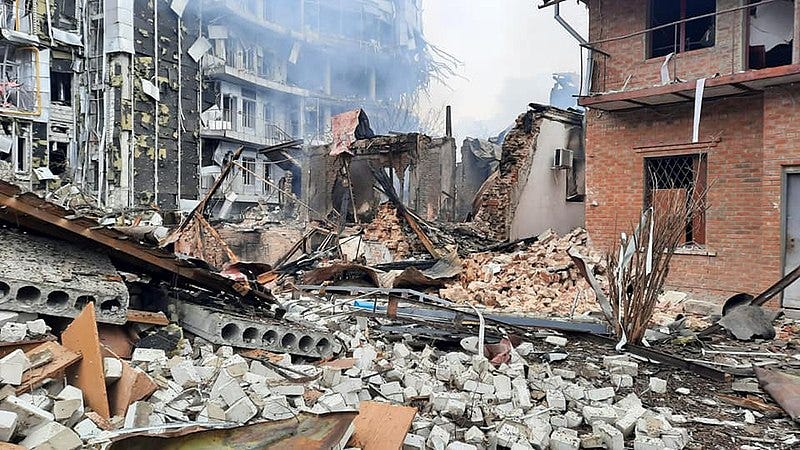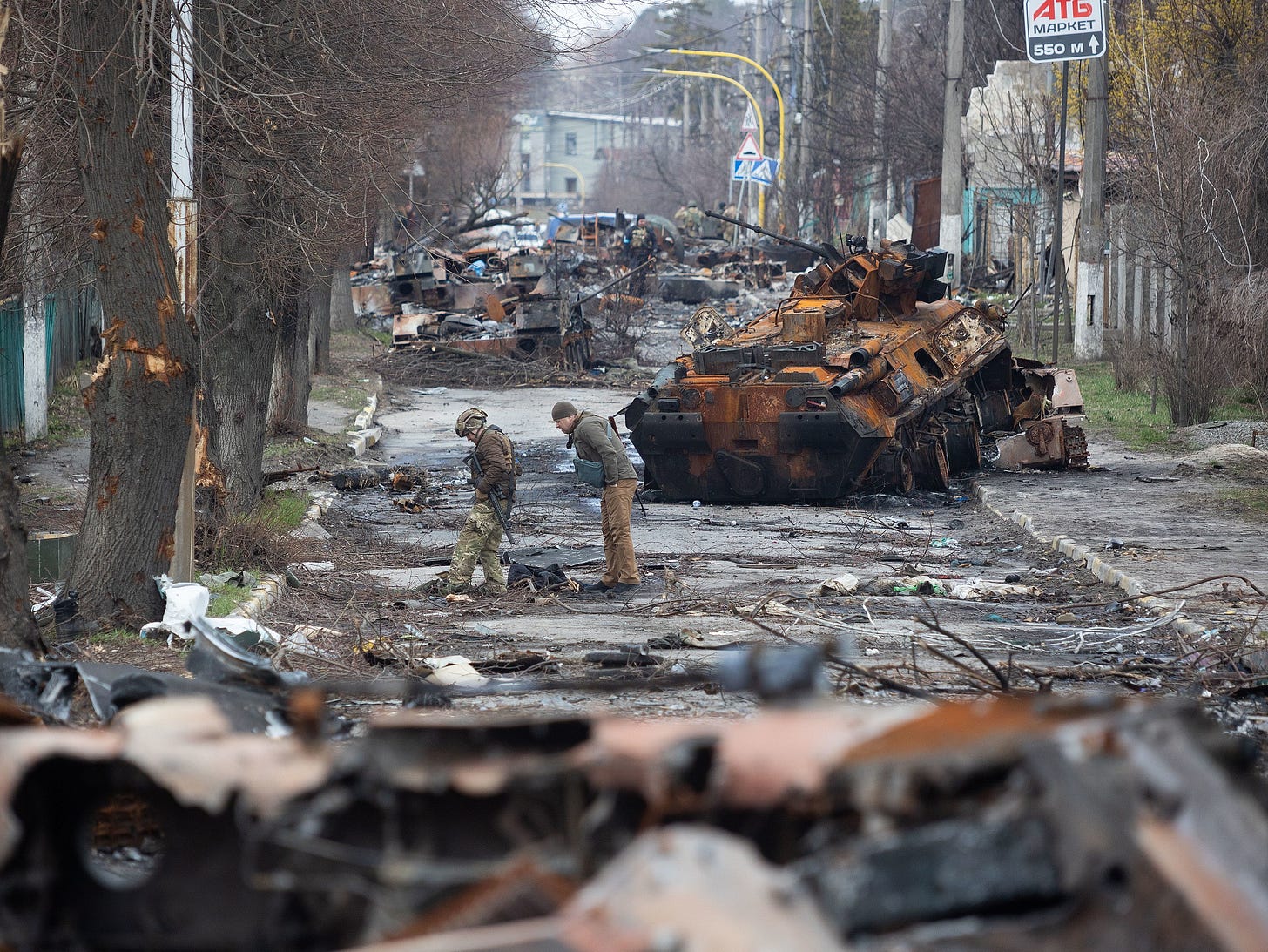
It was Friday afternoon when the news from OFAC hit my feed: the United States and the UK took coordinated action, issuing two new prohibitions meant to disrupt the revenue that Russia earns from its export of aluminum, copper, and nickel.
This new action prohibits the import of Russian-origin aluminum, copper, and nickel into the United States, and limits the use of Russian-origin aluminum, copper, and nickel on global metal exchanges and in over-the-counter derivatives trading.
Metal exchanges facilitate the trade of industrial metals around the globe. So as a result of Friday’s actions, metal exchanges, like the London Metal Exchange (LME) and Chicago Mercantile Exchange (CME), will be prohibited from accepting new aluminum, copper, and nickel produced by Russia. These actions are meant to further limit Russia’s revenues that help fund its war machine against Ukraine.
Are there new prohibitions on banks acting as intermediaries for payments related to Russian metals? No. Not yet, anyway. Banks can still process, clear, and send payments related to Russian metals by a US bank.
Do the prohibitions apply to aluminum, copper, or nickel that has been incorporated or substantially transformed into other products outside of Russia? No. The prohibitions do not apply to products that are manufactured elsewhere with Russian metals.
So what is prohibited? According to OFAC’s FAQ 1169, the Metals Services Determination prohibits the exportation, reexportation, sale, or supply, directly or indirectly, from the United States, or by a US person, wherever located, of the following categories of services to any person located in Russia:
warranting services for aluminum, copper, or nickel of Russian Federation origin on a global metal exchange; and services to acquire aluminum, copper, or nickel of Russian Federation origin as part of the physical settlement of a derivative contract (collectively, “Covered Metals Acquisition Services”). This determination does not apply to services related to aluminum, copper, or nickel of Russian Federation origin that was produced prior to April 13, 2024.
OFAC also advises that to ensure compliance with the new determination, US global metal exchanges should not accept Russian-origin aluminum, copper, or nickel produced on or after April 13, 2024. This means that both the US and UK measures will exempt the existing stock of Russian metal on these global exchanges so they can still be traded and withdrawn in an effort to minimize the risk to market stability and an owner of Russian metal has to provide evidence that it was produced before April 13.
Russia is a major producer of aluminum, copper, and nickel, and the action is meant to further disrupt Russian export revenue from these metals, limiting Moscow’s resources to wage war. Available aluminum stocks in LME-registered warehouses were 91 percent of Russian origin in March, according to Reuters.
The United States in 2018 sanctioned Russian oligarch Oleg Deripaska, but the Trump administration apparently got spooked by the resulting price jump in aluminum, and made a deal with Deripaska to reduce his ownership in Russian aluminum producer Rusal, resulting in the company’s removal from the SDN list.
There are also loopholes in the current determinations. For example, as mentioned above, payments for Russian metals can still be processed, and bilateral contracts between two companies, avoiding the LME altogether, are still legal, according to the UK. These are efforts to ensure that the supply of metal continues.
I am going to express an unpopular—but deeply personal—opinion right now. As a former Treasury officer, I was thrilled to see an increase in sanctions pressure against Russia, and I do think sanctions have been effective for what we wanted them to do.
Yes, we have maximized the costs of this war for Putin and his cronies.
Yes, we have degraded Moscow’s ability to wage war. International banks are more cautious about their Russia-linked business; strategic trade controls are limiting Russia’s ability to get critical weapons, components, and technologies; and the oil price cap has reduced Russia’s revenues.
But there’s more to be done, and we are taking a very cautious path apparently because… IT’S AN ELECTION YEAR!
The Financial Times reported last month that the Biden administration has urged Ukraine to stop attacks on Russia’s energy infrastructure, worried that Kyiv’s drone attacks risk driving up global oil prices and provoking retaliation.
Are you kidding me?
Assistant Secretary of Defense for International Security Affairs, Celeste Wallander, a few days ago commented that the United States considers refineries to be civilian targets, and Defense Secretary Lloyd Austin admitted the previous day that the United States was concerned about global energy supplies.
Are you kidding me?
Ukrainian civilian infrastructure is being targeted by Russian missiles and drones on a daily basis, murdering civilians, bombing power stations, hospitals, apartment buildings, and schools, and the Biden administration is concerned about global energy supplies?
Russia’s energy infrastructure generates billions in revenues that funds Russia’s military and its aggression in Ukraine. Oh, yes! Russia’s infrastructure is a military target.
Refineries provide fuel for Russia’s military. You bet, they should be considered military targets.
And who are we to tell a sovereign country whose population is being systematically destroyed by an aggressor, their citizens raped, tortured, and murdered, their children kidnapped, their identity erased, their infrastructure turned to rubble, what they can and cannot target in an effort to defend themselves?
You want some horrifying before and after shots of Kharkiv after the Russians’ missile attacks? Look here. The BBC also provides some nauseating insights into what the Russians have done to their neighbor.



And the Biden administration is worried about oil?
Luckily our EU and NATO allies are stepping up, and have increased their help to Ukraine. After all, they’re on the doorstep of this war. And while we sit around and argue about border security—an absolutely critical issue, but completely separate from Ukraine aid—our allies are beginning to realize that we are not a reliable partner that allowed an aggressive Russia to sow discord, support terrorism, and invade its neighbors with impunity.
RAND’s analysis from last month laid it out for those who still don’t get it, and who think that “America First” should mean we turn our backs on situations which are objectively in our best interests merely because we’re not geographically close.
Europe would chart a more independent foreign policy and seek to decrease its reliance on the U.S. defense industry and military cooperation. Some may think this is a positive, but the U.S. defense industrial base relies on both U.S. military sales and on sales to allies in NATO and elsewhere. Furthermore, the United States' ability to defend its global interests—the same interests that give Americans their extraordinary standard of living—would be diminished by nations unwilling to cooperate with an unreliable partner.
And further, what kind of message does our apathy send to China? Joseph Wu, Taiwan’s foreign minister last month said that China is watching this dithering about sending Ukraine more weapons and would be emboldened in its aggression against Taiwan, fueling propaganda from Beijing that the United States is an unreliable partner.
If Russia is able to occupy more of Ukraine and claim victory, he added, “it would be seen as a victory of authoritarian states because Russia, China, North Korea and Iran, they are now linked together.”
Some in the United States are taking a simplistic view of how critical our support to Ukraine is. They are not expanding their aperture to see the geopolitical repercussions of our inaction. They ignore Russia’s history of aggression against its neighbors. And they falsely believe that our support to Ukraine means we don’t have enough to secure our own borders. They have fallen prey to Russian propaganda—talking points about Ukrainian corruption, spreading information from fake “news” sites that have conveniently popped up during the past few months, alleging that those who want to ensure Ukraine’s victory on the battlefield are sacrificing the US southern border.
Some are so far gone, that even when the media runs credible research about Havana Syndrome being a Russian intelligence operation, they stubbornly focus on the “bad makeup job” to disguise one of the victims interviewed for the story as proof that the claims about sonic weaponry created and employed by Unit 29155 of the Russian GRU was probably the cause of Havana syndrome were somehow false.
Enough is enough already!
The gradual ratcheting of sanctions pressure against Russia is a slow process and a long game. And while effective in the long term, how long will we allow the genocidal Putin regime to continue its aggression?




It doesn’t matter which side — it ALL goes back to the fact that we’re knee-deep in an election cycle. Not the moral thing to do. Not that innocent people are dying due to Putin’s aggression and crazy revanchist dreams.
And it’s not at just at the presidential level, either. Senators and Congressmen test the waters to see how popular funding for Ukraine is this week.
Then there’s Israel and a president who lectures that nation on how to respond to the barbarians who slaughtered his people.
Ugh! Politics!
Nothing wrong with your feelings. You have a vested interest in that part of the world!